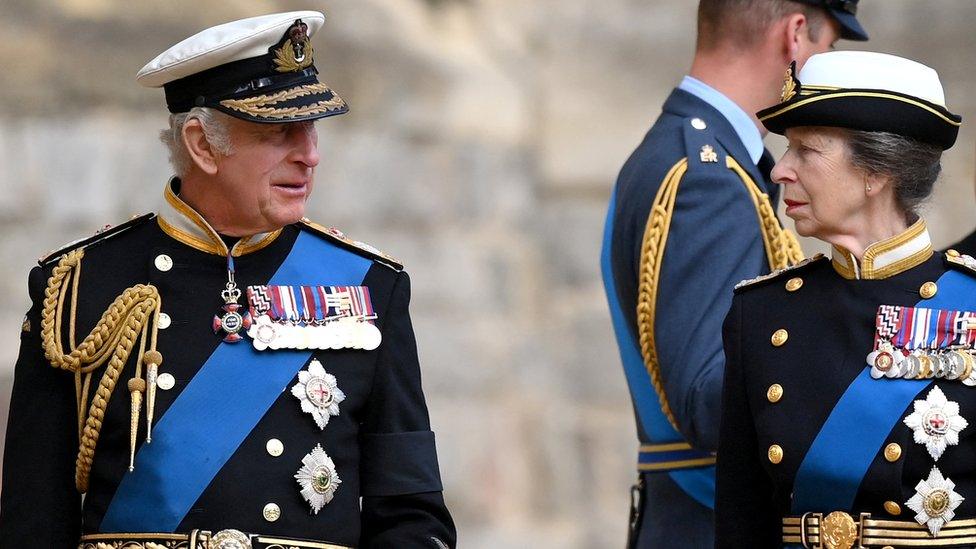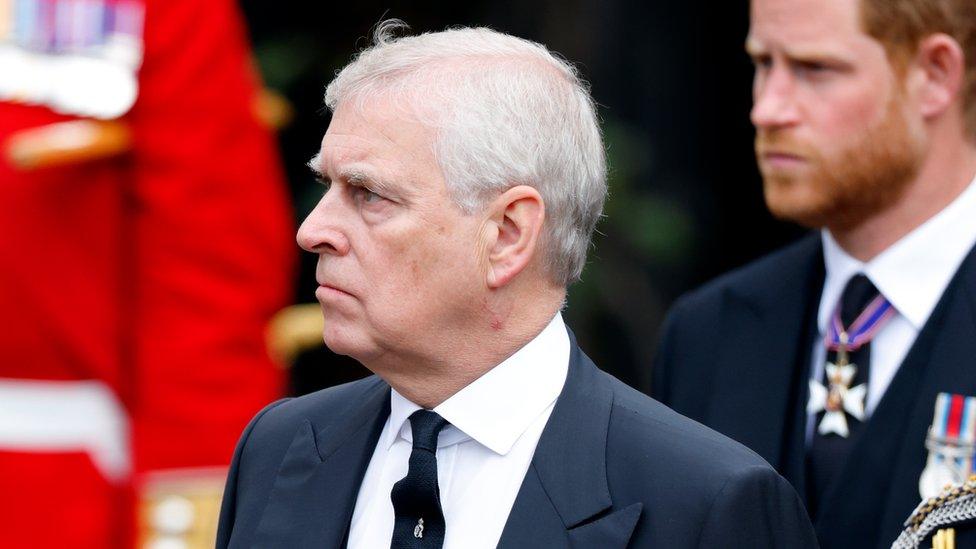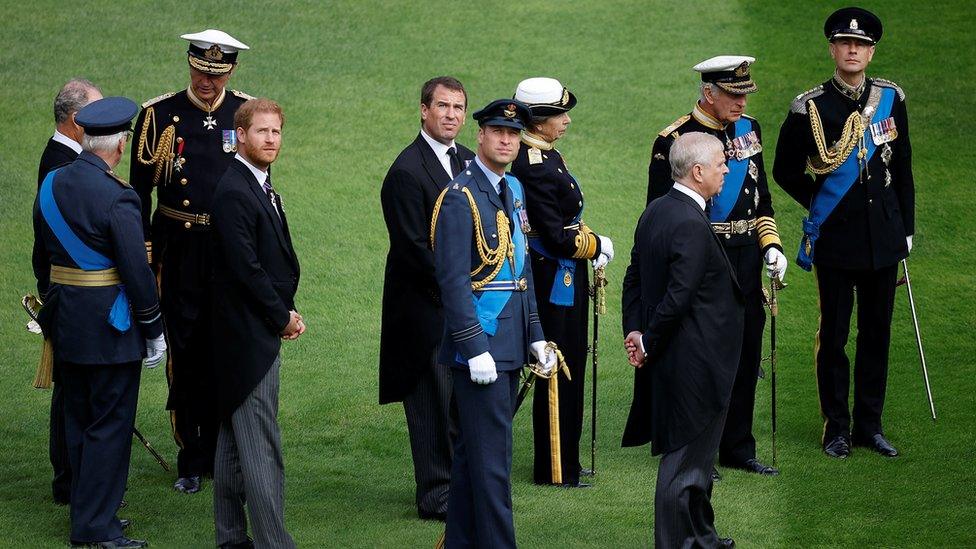More stand-ins for King, but Prince Andrew and Prince Harry stay
- Published

Princess Anne could be added to the list of royals who could act on behalf of the King
The number of royals allowed to stand in for King Charles for official duties is likely to be expanded, according to sources.
It is understood that the current pool of five "counsellors of state" could be widened, perhaps adding royals such as Princess Anne and Prince Edward.
Prince Andrew and Prince Harry would continue in these roles.
Counsellors can carry out important constitutional duties if the monarch is unwell or overseas.
But there were questions in the House of Lords this week about the need to update the rules for eligibility.
Labour peer Viscount Stansgate had challenged how Prince Andrew, the Duke of York, and Prince Harry, the Duke of Sussex, could be two of the five potential replacements when one had "left public life" and the other had "left the country".
Any update will require an amendment to the Regency Act, which is under the auspices of the Cabinet Office, but there appears to be momentum behind such a constitutional change.
However, it is expected that the response will be to widen the number of royals who can act on behalf of the monarch, making a more flexible list of available working royals - rather than removing Prince Andrew and Prince Harry.

Peers questioned the status of Prince Andrew and Prince Harry as two of the current five counsellors of state
Depending on the legislative timetable, there could be changes later this year, reflecting the need to have stand-ins in place when both the King and Queen Consort and Prince and Princess of Wales could be on overseas trips in 2023.
Under the Regency Act, counsellors of state are the spouse of the monarch and the next four in the line of succession, over the age of 21.
At present these are Camilla, the Queen Consort; Prince William, the Prince of Wales; Prince Harry, Duke of Sussex; Prince Andrew, Duke of York and his daughter, Princess Beatrice.
They can carry out official duties, such as signing documents, receiving ambassadors or attending Privy Council meetings, if the monarch is temporarily ill or abroad,

Counsellors of state could be needed if the King is travelling overseas
This authority was used earlier this year to allow the then Prince Charles to carry out the State Opening of Parliament on behalf of the late Queen.
Labour peer Viscount Stansgate - who is Stephen Benn, the eldest son of Labour politician Tony Benn - said this showed the value of updating the Regency Act, to ensure royals were available to stand in.
"It is the only reason why it was possible to open the current session of this Parliament," he told peers in the House of Lords.
He called on the government to approach the King over changes to the current arrangements, now that Prince Harry was living in the United States and Prince Andrew no longer carried out royal duties.
Lord Addington, a Liberal Democrat, suggested that working royals - "somebody who actually undertakes royal duties" - should be given priority for these roles.
In response, the Lord Privy Seal, Lord True, said he would not comment on "specific circumstances" of counsellors, but he did not rule out a change.
"The government will always consider what arrangements are needed to ensure resilience in our constitutional arrangements," Lord True told peers.
"And in the past we have seen that the point of accession has proved a useful opportunity to consider the arrangements in place."
Changes to the legislation would be the responsibility of the Cabinet Office and a spokeswoman referred back to the comments of the Lord Privy Seal.
Representatives of Prince Harry and Prince Andrew declined to comment.